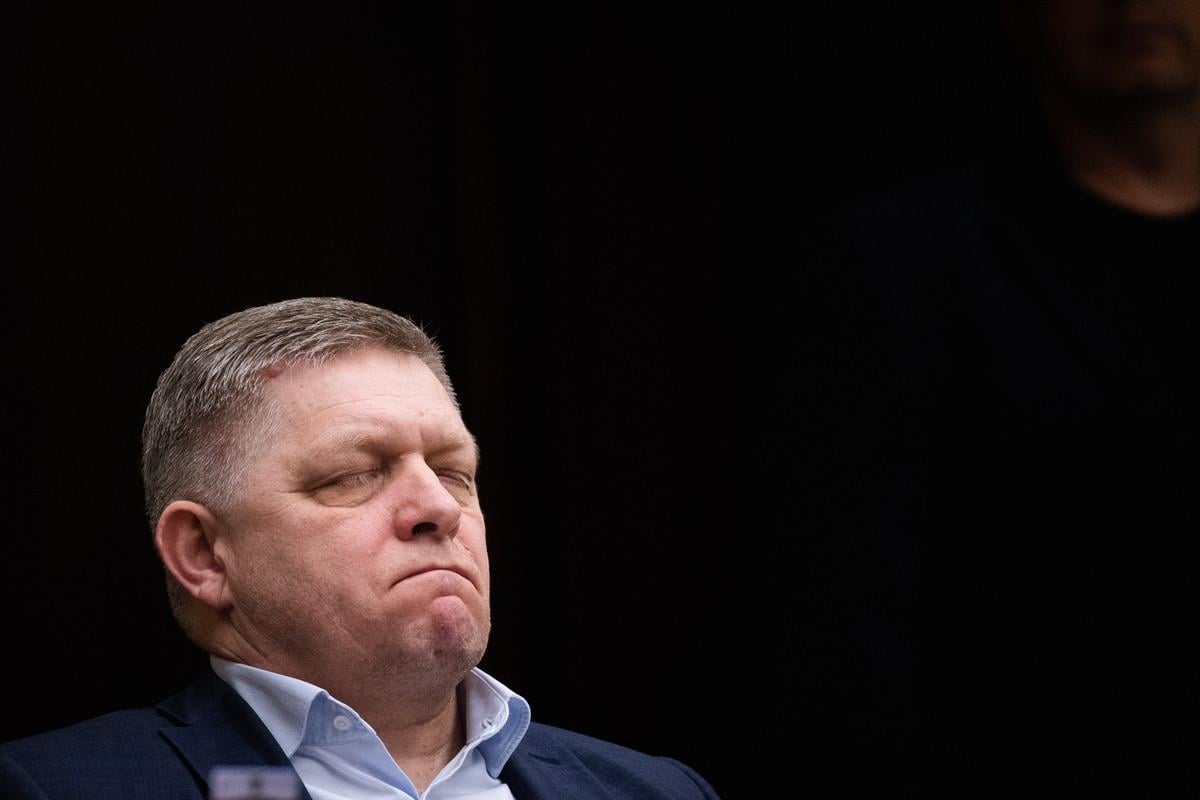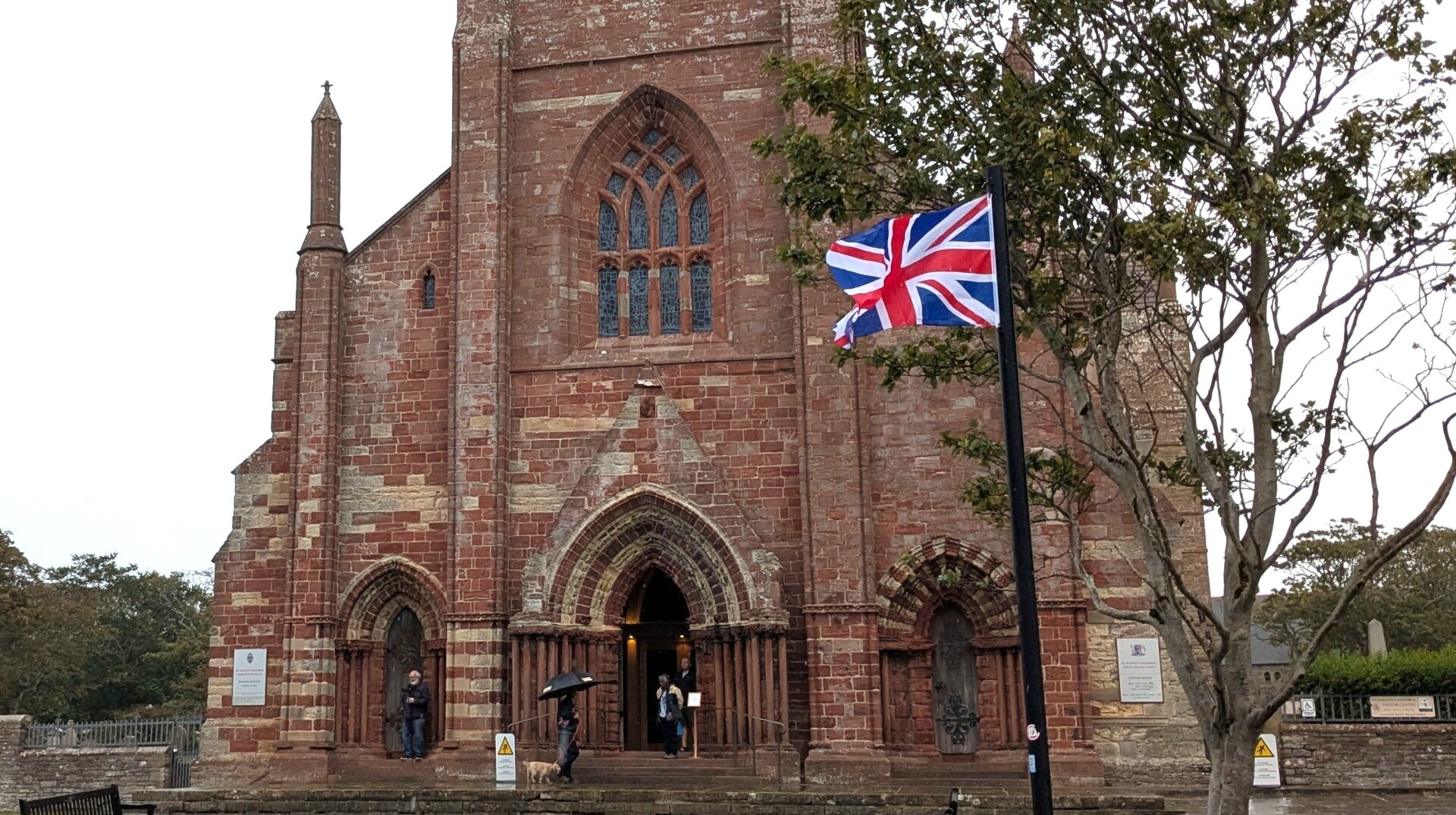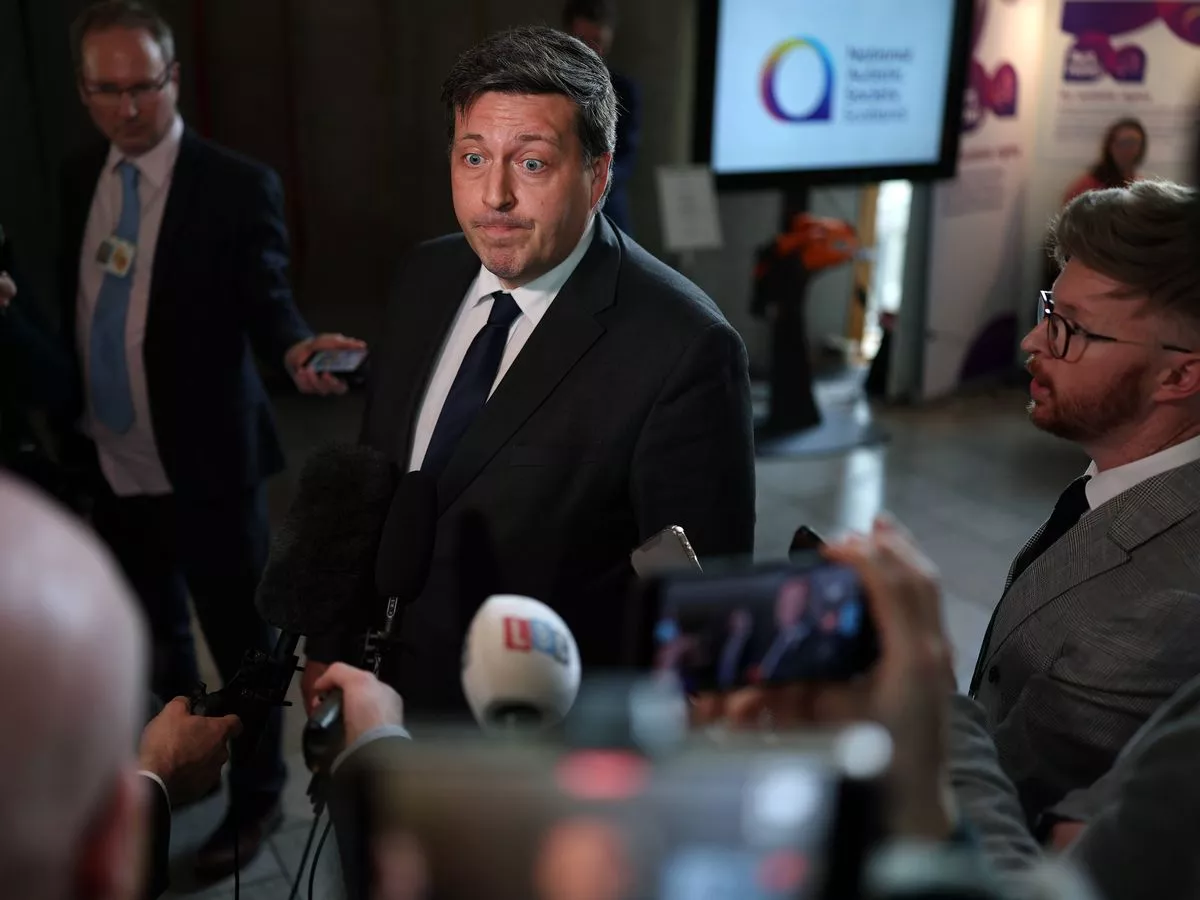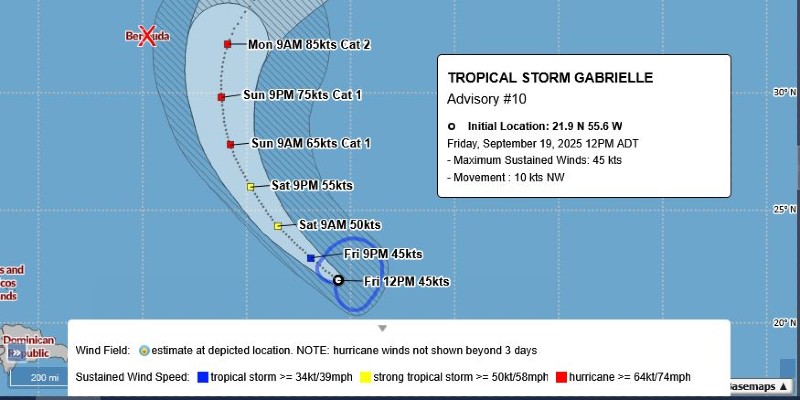By Marta Šimečková
Copyright sme

The letter was published on the website of the daily Sme on 6 June 2025.
Dear Prime Minister Robert Fico,
I am the one whom you, Tibor Gašpar, Erik Kaliňák, and other of your closest associates have been mentioning in your public appearances for months now – perhaps in every second one. And it seems you will continue to do so again and again, whenever you are confronted with some fundamental question concerning the responsibility of your government.
At the beginning of the 1990s, we came into indirect contact – I was involved, through the publishing house Archa, in the publication and promotion of your book Human Rights – Selection of UN Documents, which appeared with the support of the Open Society Fund. However, we did not meet in person at that time, as you were then on a study stay in the United States. Later, we did meet when I interviewed you on the death penalty for the weekly Mosty (Bridges).
According to you, I am a person who, over the past decades, has scandalously enriched myself from public funds. According to your words, I have amassed from state and European resources staggering sums of money.
You speak of me as a parasite and insinuate massive fraud. One day, a court will decide whether you can do so without consequence. That, however, will still take some time. But since you repeatedly demand that I “explain” the supposed millions I have amassed, I would like to address you directly.
So, first of all
Over the last thirty years, I have managed to amass nothing. Neither for myself nor for anyone in my family. I have lived, and continue to live, more or less the same life as before. Since the revolution to this very day, I have not accumulated any property; I do not and did not go on exclusive holidays; I do not buy jewellery, outfits, designer accessories, nor expensive works of art or vintage alcohol.
I have not purchased any property, nor has anyone in my family (apart from the flat my son bought with a mortgage, in which he now lives with his family). No villa, no holiday home, neither in Slovakia nor on the Adriatic or the French Riviera, nor anywhere else.
I do not own a yacht, I have made no investments, I have no money buried in the ground, none written under the name of a straw man, none hidden in a tax haven. I do not even have a pedigree dog – only, by coincidence, a crossbreed from a shelter. I still live with my husband in the three-room house we bought on credit over forty years ago. To give you an idea of this “property” – our house would fit comfortably on the terrace of your flat. I have never handed business or a position to anyone, nor did I have any means of doing so.
After all, you are the prime minister, the best-informed man in the country. So, in fact, you know all of this perfectly well.
A further note: I have nothing whatsoever against wealthy people and I respect anyone who, through talent and diligence, is able to acquire and cultivate property, even extensive property. And I have nothing at all against those who are able to enjoy their wealth. My life story is simply somewhat different, that is all.
On how grant money was used
So what, then, were the grant monies used for?
First, I would like to state that everything received from grants – from public, Slovak as well as European sources – by the civic association Project Forum, of which I am the statutory representative, can be easily traced in the Central Register of Contracts and in the documentation of the European Education, Audiovisual and Culture Executive Agency. Not only the approved amounts are published, but also the complete contracts – what activities and expenses they concerned, the time frames for implementing the activities, and the deadlines for accounting.
I assume, Mr Prime Minister, that your information is not full of gaps, and that therefore you are aware of your own falsehood in one of the televised debates, where you claimed that the European Commission grants awarded to our civic association between 2014 and 2017 served only for the running costs of the organisation, i.e. salaries, and not for projects. This is a lie – one of those that sinks unnoticed amidst many other lies.
You believe you can go on insulting me indefinitely, relying on the assumption that people cannot imagine how it is possible to be the statutory representative of an organisation which secures grant funding for large projects without having beforehand insured itself through connections.
And above all, how it is possible to secure such grants without skimming something off the top for one’s personal benefit. Or perhaps it is rather that you yourself cannot imagine it. According to your logic, I should long since have been, as people say, “set for life”.
So how is it that I am not, nor is anyone close to me? It is not that complicated. Essentially, it requires only one thing: that you care about your projects. If you care about them, you put into them everything you can – time, energy, money – and thus not only do you have no opportunity, but you also have nothing left to “skim off”.
The Central European Forum – for it is precisely this project that received by far the largest share of public funding – is an international, multidisciplinary conference open to the public, held annually in Bratislava and other Slovak towns on the anniversary of the Velvet Revolution, without interruption since 2009. Its theme is the same as that of 17 November itself: the state and immediate future of democracy, human dignity, and human rights. In those years when we managed to secure sufficient resources, we also organised, on the anniversary of the establishment of the fascist Slovak State, the Central European Forum on Fascism.
The November Central European Forum lasts, depending on the financial circumstances of each year, from two to four days. (In the pandemic year 2020 it was held online, and in the following year only for one day, and only with Slovak guests.) In its recent editions, between 800 and 900 people attended the debates in Bratislava each day. Over the years, some two hundred writers, social scientists and artists from across Europe and the world have taken part in the discussions. These are leading figures of contemporary thought, many of whom had never before spoken in our country, including three Nobel Prize laureates. At each annual event between 15 and 35 guests appeared, 90 per cent of them from abroad. (Among the most notable, I would mention Chimamanda Ngozi Adichie, Svetlana Alexievich, Anne Applebaum, Timothy Garton Ash, Zygmunt Bauman, Laurent Binet, Slavenka Drakulić, Didier Eribon, Thomas Hylland Eriksen, Péter Esterházy, Agnieszka Holland, Mircea Cărtărescu, Masha Gessen, Natalia Gorbanevskaya, David Graeber, Viktor Fajnberg, Gilles Kepel, Ivan Krastev, Gilles Lipovetsky, Avishai Margalit, Robert Menasse, Adam Michnik, Claus Offe, Timothy Snyder, Milo Rau, Bernhard Schlink, Ingo Schulze, Andrzej Stasiuk, Joseph Stiglitz, G. M. Tamás, Olga Tokarczuk, Ilija Trojanow, Dubravka Ugrešić, Ludmila Ulitskaya, Oksana Zabuzhko, and in the online edition Francis Fukuyama and Michael Ignatieff.) Entry to the forum is always free of charge, and simultaneous translation is provided for all. The recordings are permanently available online.
I am not aware of any freely accessible, public, and at the same time prestigious international event on the subject of democracy – or any other subject – that has ever been organised in Slovakia by the state, nor of any state-run public event in which a Nobel Prize laureate has taken part.
If we calculate the average costs of one edition of the Central European Forum (including the March editions) over its sixteen years of existence, it amounts to roughly €100,000 per year – covering the fees of world-renowned authors, the cost of air travel and other transport, accommodation, venues, interpreting services and technical equipment, detailed bilingual information bulletins, publicity, as well as remuneration for year-round preparation and coordination.
For comparison: last year, the state organised a public event to mark the 1161st anniversary of the arrival of Saints Cyril and Methodius at Devín Castle. At the event, dance and music ensembles performed, a documentary was screened, and there was a single speech – yours. It lasted 20 minutes. The audience consisted of invited guests, and the whole event lasted two hours. Your government allocated €452,000 for this event. It was organised by the Culture Ministry – but who exactly it entrusted with it, whether there was any form of tender, and whether the expenses had to be accounted for, we do not know. I shall not go into whether that sum was reasonable, nor into what value this event brought; I cite it here only as a comparison. These two hours, under the auspices of your current government, cost Slovak taxpayers some €52,000 more than four average annual editions of the multi-day, public, international Central European Forum in Bratislava and other towns.
I wish to respond to what you repeatedly cite as proof of my parasitism, fraud, and even potentially criminal activity. I assume that in reality you also have enough information about how matters truly stand.
In 2010 our civic association successfully applied for a grant from the European Education, Audiovisual and Culture Executive Agency under the call Cooperation with Third Countries. This was a call intended to strengthen mutual contact between EU member states and European countries outside the Union through culture. Our project, Europe in Mirrors, was focused on literature and consisted, in addition to translating and publishing online contemporary texts about Europe in English and Slovak, primarily in a mobility scheme for writers from EU member and non-member states – in each European country, an author from another part of Europe was to spend roughly a month and write a literary reportage or essay about that country. The output – a collection of reportage essays – was then to be presented by the authors at public readings in at least three so-called third, i.e. non-member, European countries.
The contract bound us to co-finance the project with fifty per cent. We mistakenly assumed that a project approved by the European Commission’s agency would be significantly co-financed by Slovakia as a signatory of the EU’s cultural cooperation agreement. After all, even the European Contact Point in Slovakia – an institution intended to support Slovak civil society in applying for calls from the Education, Audiovisual and Culture Executive Agency, with which we consulted our project at the time – confirmed to us that Slovakia co-finances projects which have obtained European support. In short, we assumed that if a project had been selected from among numerous European projects by a Commission agency, then its funding had already passed the most demanding stage. But it had not. After six months of project implementation, in April 2011, we were able for the first time to apply for co-financing from the Culture Ministry, and our project received less than one per cent of its planned budget. It was already clear that the two-year period allotted for the project’s completion could not suffice, and that we would need more time in which to attempt to secure the missing co-financing from other sources. Naturally, we requested an extension from the agency, but it does not permit extensions of project duration.
We therefore attempted to do both simultaneously: search for co-financing and at the same time continue with the project. The result was that we achieved what we could within 24 months, using the advance funding provided by the agency together with additional monies that we managed towards the end of that period to secure from other sources – a truly complicated task.
So what did we accomplish under Europe in Mirrors? Up to 900 pages of surveys and translations of contemporary essays on the theme of Europe (into English and Slovak); in cooperation with partner organisations and their experts, we selected 12 Europe in Mirrors candidates – authors from twelve European countries, both renowned and younger, mostly from so-called “third countries”. These were contacted and each was provided with roughly a one-month stay in a different country. Over two years, twelve very diverse literary portraits of twelve countries were produced, which we subsequently translated into English and Slovak and published, with an introduction by Radka Denemarková, in the book Mirrors of Europe. All these texts are available in Slovak on our website, and in these days they can also be found on the Aktuality website. Today, when Europe and our belonging to it are such major issues, these various perspectives on its constituent parts may be even more relevant than when they were first written.
So why did the European Commission’s agency ultimately terminate the contract with our association and, now after nine years, block our account and demand repayment (with high interest) of the entire advance funding? Because we did not manage, within the two-year time limit, to organise trips to non-member countries with the project’s partner organisations there and to present Mirrors of Europe in those countries. We were not granted more time, and so we did not fulfil the contract in its entirety. Not because any of the funds obtained were misused, not because any of the EU funds were unreported or unaccounted for.
You, along with your ministers, MPs, and with you hundreds of outraged anonymous voices on social media and in unsigned letters, shout at me to “prove it”. But everything has long been proven. All the funds obtained were fully accounted for in the final financial report. The report was approved by an EU-certified auditor, as was mandatory for European projects, and the audit confirmed that the money was used for the purposes of the project and in accordance with the contract. That is a fact that the European Education, Audiovisual and Culture Executive Agency has never disputed. It objected to something else: that we did not fulfil the contract in its entirety, and therefore it withdrew. But we failed to fulfil it not because anyone misused EU funds, but because of a significant, objective obstacle that we were unable to overcome within the allotted time. For this reason, our association now has a strong argument in our negotiations with the relevant agency of the European Commission, as we request that it review and reconsider its decision. The money was used for the purpose for which it was granted, and undeniably contributed, through literature, to bringing closer together the nations of Europe, both member and non-member.
Mr Prime Minister, I know that none of this interests you in the slightest, but I consider it necessary to tell you nonetheless, since I know that at the next opportunity you will again speak of my “staggering fraud”.
Of course, this is not so much about me or Project Forum. The main target of these attacks is my son, since he is today your principal challenger, and your strategy is, instead of political argument, to fling mud at his family. And I serve you well as someone you can portray as a fraudster and a parasite, even though you must know that there is no amassed luxury or property behind me. And you could also know that there is no life of idleness behind me either. Likewise, you surely know that the results achieved over nearly twenty years by the projects of the civic association of which I am the statutory representative are well known to hundreds upon hundreds of people in Slovakia, and require no explanation. Regardless of this, you can be sure there will always be enough who gladly believe you, and who are happy to join in the shouting. And others, in whom perhaps a quiet doubt will sprout – what if where there is smoke, there is fire?
Yes, I know that willingly or unwillingly I too, as the close relative of a politician, am a politically exposed person, and I must accept this. I too receive threats, insults and vulgar calls – by post, by email and through social media – always after you mention my supposed millions at a press conference or on television. But on the other hand, at those times I also receive much encouragement, support and gratitude – so much that sometimes I do not even know whether I truly deserve it.
I, as your regular substitute target, am at least genuinely the mother of a politician. But the mud you have thrown at Project Forum has not soiled only me. My colleague, who like me has invested almost twenty years of her energy, talent and work into our projects, and who has never had anything whatsoever to do with Progressive Slovakia or with any other opposition or political party, now regularly finds in her post box, after your public statements about our association, perhaps even more aggressive anonymous letters and even more dangerous threats than I do. (“We’ll poison that filthy dog of yours and you too”, “progressive Jewish whore”, “you’ll die!”, and the like.) I have no reason to suppose that any of this could truly trouble you, but I want you to know it.
And what about the flood of vulgar abuse directed at Michal’s partner – triggered by the repulsive insinuations you yourself launch at press conferences, along with those closest to you, in order to ingratiate yourselves with the basest instincts in people? I understand that contemporary art repels you. Art which seeks new ways of expressing the world is, by definition, free – for it cannot be otherwise – and it need not be political to arouse your suspicion. It matters not that you have no inkling of contemporary art, no idea why society needs it, and think that culture should exist merely as decoration. Just as Goebbels and Zhdanov once did, you incite people against it, as if it threatened or limited anyone, you ridicule it and place it in the pillory. And when it concerns the partner of the opposition leader, you are not even ashamed to attempt to humiliate a woman directly in her womanhood. For you, this is a convenient combination of the pleasant and the useful – ideology, strategy, and tactics all in one. I know of no politician, past or present, in Slovakia or elsewhere, who has waged his political struggle in so cowardly a fashion.
And then there is the mud you cast at the Milan Šimečka Foundation, which you have already all but succeeded in destroying. That foundation never had anything whatsoever to do with Michal Šimečka – only with the name of his grandfather, dead for over thirty years, who – with your permission – was a major writer, a regime opponent, a political prisoner, and a bearer of the humanist values that the foundation has promoted for more than three decades. What the Milan Šimečka Foundation has actually done, what it has built in human-rights education, in documenting the situation of marginalised groups, how it inspires teachers and social workers, where it stands in for the state, and what value for money it provides – all this, I am sure, is of no interest to you whatsoever.
It may well be that all this, to which you have devoted yourself so tirelessly in recent months, serves you well as political marketing. But you must surely also sense that if anything of these buckets of filth of yours remains – and history will never wash them away – it is precisely your name, Mr Prime Minister, to which they will cling.
And now, fourthly
To attack associations connected, even if only by name, with your challenger Michal Šimečka is, for you, a welcome bonus. Your declared priority is to fight civil society as such, since it is this that you regard as threat number one. You have said so since the beginning of this parliamentary term: that the greatest enemy of the government is not so much the political opposition, but the NGOs and the media – in other words, all that in society is independent and constitutes civil society.
I have the impression that, thanks to you, the concept of civil society in Slovakia has begun to gain strength and to live an authentic life. It is, of course, a broad concept: civil society is not a unified phalanx, it does not share a common worldview, it is not bound by a generation, it has no shared cultural or other preferences, and it does not even share the same fields of activity. It has only one thing in common: an interest in creating self-governing, active communities, in working freely on what matters to them, in expressing themselves freely – whether in civic, artistic, political or indeed any other form – and in assembling and associating freely. Yes, civil society is a far broader concept than NGOs. You are doing everything you can to ensure that in Slovakia the two concepts now merge into one.
In a democracy, as we know, citizens have the right to do anything not forbidden by law – unlike politicians, who may do only that which the law permits. You are attempting to persuade society that the reverse is true: that you can do anything not forbidden by law, while citizens may do only what the law prescribes. You seek to be a government which is not a partner to citizens’ associations, but their superior, their tamer, their overseer.
Through your special squad you are already fighting also against the League for Mental Health, an institution which operates precisely in an area where our state has been failing tragically for decades. Here too, you rely on the expectation that when you wave before people’s eyes suggestive, selectively chosen figures and fragments of information, their reason will be switched off – pushed aside by greed and envy – and they will thank you for cracking down on such leagues. Husák’s and Jakeš’s regime once tried to do much the same with those who behaved freely: it sought to persuade people that while they were honestly going to work, “enemies of the people” were living care-free lives off their fat hard-currency accounts. For a time, the Party and government succeeded with this approach – until one day it ceased to work.
The more you restrict and strangle the independent activity of citizens, the more you try to frighten us, the more you divide us into charity workers and lobbyists, the harmless and the political, the useful and the parasites, the more you attempt, to use your expression, to “debone” us – the more civil society in Slovakia will grow. In the end, it will not only consist of the NGOs scandalised by you, but simply of all those who truly feel themselves to be citizens – regardless of their views or cultural preferences. Free civil society will therefore become ever broader and will not be silenced, even if you were to dissolve every NGO.
That, Mr Prime Minister, is probably all I wished to write to you.
With sincere wishes for your health,
Marta Šimečková



